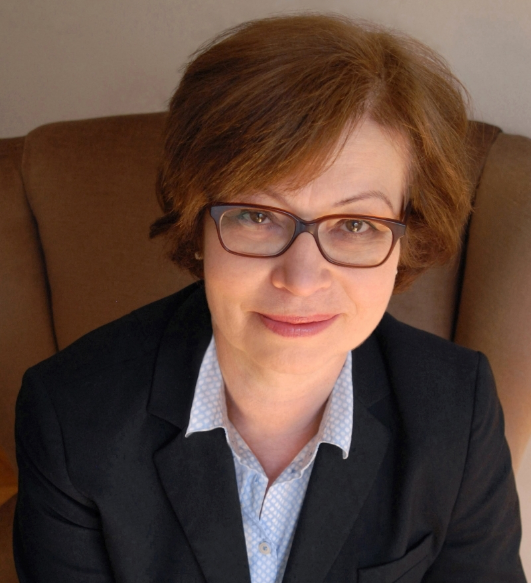Global Japanese (Semiotics of Japanese loanwords, innovative scripting variations, and linguistic landscapes outside of Japan).
Plurilingualism in Language Policy (Migration, Education, and AI: Shaping Multilingual Societies).
1956 Born in Baja, Hungary
1975-1980 M. A. German, Slavic, Chinese Studies Eötvös Lorand U. Budapest
1976 Fellowship University Odessa
1979 Fellowship Humboldt University East Berlin
1979 Marriage with the philosopher Prof. Dr. Achim Eschbach
1981-1984 Dr. phil. at Ruhr-University Bochum
1983-1984 Associate Professor University Bochum, Faculty for East Asian Studies
1990-1991 Professor for Modern Japanese Studies, Trier University
1992-2023 Professor for Japanese Linguistics, Eberhard Karl University Tübingen
1993 Visiting Professor, Tokyo University
1993-2023 Co-Director, Tübingen University Center for Japanese Studies, Doshisha University, Kyoto
1998 Visiting Professor, Tachibana University, Kyoto
2004-2006 Vice-Dean, Faculty for Cultural Studies
2007- 2017 ETH Zurich Swiss Lecturer – History of East Asia – Culture and Science
2019- 2020 Project Professor, Tokyo College, Tokyo University
2023 Professor Emeritus Eberhard Karls University Tübingen
2025 Visiting Professor Tokyo College
【Books】
Japanese in the City of Zurich. Zurich: TRIA (forthcoming 2026) (Author)
Reflecting on Signs. Contributions to the History of Semiotics. Achim Eschbach. Kodikas/Code.Tübingen: Narr 2021. (Edited and translated with Eschbach, A., Eschbach, N.)
Japanische Sprachwissenschaft. Sprachliches Wissen für Japanologen. (‘Japanese Language and Linguistic Knowledge for Japanese Studies’) Tübingen: Narr 2015. (Co-author with Ebi, M.)
Esterhazy, Peter: 女がいる。(Egy nő ‚ ’There is a woman‘), Translation Hungarian-Japanese).東京 白水社 2014. (Edited and transl. with 加藤由実子Katô, Y.)
Zimándi Pius. Egy év története naplójegyzetekben. 1944. Március 19. – 1945. Március 17. (‘The Budapest Diary of a German Monk and Literary Scholar – German and Russian Occupation 1944-1945’) Budapest: Magvető 2015.
Japan and the Japanese People. Views from a Transcultural Perspectives. Berlin: LIT 2010. (Co-editor with Hattori, O., Ebi, M.)
Personen und Namen im Japanischen: Veränderungen in der Modernisierung und Globalisierung. (‘The Concept of Person and Name in Japanese in the Modern and in the Global Age’) Berlin: LIT 2009. (Author)
Ikegami, Yoshihiko: Die Sprachen des Tuns und des Werdens. (するとなるの言語学). Berlin: LIT 2007. (Translation with Ebi, M., Oberwinkler, M. et al.)
『異文化との出会い 世界の中の日本とドイツ』 (‚Japan and Germany Intercultural Encounters’) Berlin: LIT 2005. (Co-editor Koyama-Siebert, Y., Ebi, M.)
Interkulturelle Singer-Studien: Zu Leben und Werk Kurt Singers. (‘Life and Scientific work- Kurt Singer Tokyo University Professor, Economist and Cultural Semiotician’) München: iudicium 2002. (Edited with Eschbach, A., Ikeda, N.)
Bochumer Jahrbuch zur Ostasienforschung 11-13. Bochum: Brockmeyer, 1986-1988. (Edited with Sasse, W., Stalph, J.)
Temporalität im Japanischen. (‚Temporal Perspectives in Japanese Literature, Akutagawa, Kawabata, Mori, O.’) Wiesbaden: Harrassowitz 1986. (Author)
Siebold-Bibliographie: Schriften über Philipp Franz von Siebold 1824-1984. Wiesbaden: Harrassowitz, 1986. (Co-author with Kneider, A.)
【Co-authored books】
With Stalph, J., Sasse, W. (eds.): Bochumer Jahrbuch zur Ostasienforschung. Vols. 11-13. Bochum: Brockmeyer 1986-1988.
With Kneider, A.: Siebold-Bibliographie. Schriften über Philipp Franz von Siebold 1824-1984. Wiesbaden: Harrassowitz 1986.
With Eschbach, A.: Bibliography of Semiotics 1975-1985. Amsterdam: Benjamins 1986, 2 vols.
With Eschbach, A., Ikeda, N. (eds.) : Interkulturelle Singer-Studien: Zu Leben und Werk Kurt Singers. München: iudicium 2002.
With Koyama-Siebert, Y., Ebi, M. (eds..):『異文化との出会い. 世界の中の日本とドイツ』 Berlin: LIT 2005.
With Ikegami, Y., Wlodarczyk, A. (eds.): Japanese Linguistics: The European Chapter.
Tokyo: Kurosio 2007.
With Buck-Albulet, H. (eds.): Kulturwissenschaften und Frauenstudien. Tübingen:
Gleichstellungskommission der Fakultät für Kulturwissenschaften der Eberhard-Karls-Universität Tübingen 2007.
Ikegami, Y.: Die Sprachen des Tuns und des Werdens.『するとなるの言語学』Transl. with Ebi, M., Kienle, P., Nogami, S., Ono-Premper, Y., Oberwinkler, M. Berlin: LIT 2007.
With Hattori, O., Ebi, M.: Japan and the Japanese People. Views from a Transcultural Perspective. Berlin: LIT 2010.
Esterhazy, Peter『女がいる』 Egy nő. Transl. Tokyo: Hakusuisha 2014. Transl. with Katô, Y.
With Ebi, M.: Japanische Sprachwissenschaft. Einführung für Japanologen und Linguisten. Tübingen: Narr 2015.
Zimándi, Pius I.: Egy év története naplójegyzetekben. (‘The Diary of one Year. History of the last year of the second world war in Hungary’). Edition. Budapest: Magvető 2015.
【Main articles】
“The Term Identity. From Standard Average European to Japanese.” In: Facius, M. (eds).: Tackling Wicked Identity Problems. Transdisciplinary Positions on Institutional Change from Japan. Tokyo: Tokyo College. (Forthcoming)
“Japanisch und Deutsch als Wissenschaftssprachen – und ein Zen-sationelles Wörterbuch. (‚Languages of Science Japanese German – a Zen-sational Dictionary‘)” In: Stalph, J. (et al. eds.): Ein Jahrhundertwerk: Das Große japanisch – deutsche Wörterbuch (GJDW). Tokyo: OAG 2023. pp. 97-104.
『よりよく老いる――ドイツのマニュアルを読む』(‘Reading Manuals – Healthy Aging in Germany’)(Transl, Inoue M.) 井上百子訳. In: 服部伸 (ed.):『身体と環境をめぐる世界史 』京都 人文書院 2021, pp. 384-410.
“Kambe Takenori (1940-2000). A Tókiói egyetemről Budapestre. (‘From Tokyo University to Budapest. Kambe Takenori’).” In: Vihar, J. (ed.): Magyarországi és Japán kapcsolatok az elmúlt évtizedek tükrében. (‘Hungarian and Japanese Connections’). Budapest: M. J. B. T. 2020, pp.53-79.
“Numano Mitsuyoshi and Roman Jakobson.” In: Japan, Europe and the World. Renikusa/Renyxa, Tokyo. 10-2, 2020, pp. 20-24.
『原語類型から見た非 流暢性』(‘Disfluency from typological perspective: With special reference to prolongation and continuation’) with Sadanobu, T., Hidasi, J., Somodi, J.: In: JASS, The Japanese Journal of Language in Society 社会言語学2018. pp.113-128.
“Contemporary Situation of Hungarian Literature in the Context of Europe Today.” In: Numano, M. (ed.): World Literature and Japanese Literature in the Era of Globalization. Tokyo: Tokyo University Press 2018, pp. 161-171.
“100 Methoden um 100 Jahre alt zu werden. Eine Analyse des Sprachgebrauchs zum Thema Altern in Japan und Deutschland.” (‘100 Methods to Become 100. Aging Topics Japan and Germany’) In: Gebauer, M., Nettesheim, M. (eds.) Alternde Gesellschaften und Rechtssysteme. (‚Legal Systems and Aging Societies‘) Tübingen: Mohr 2015, pp. 229-243.
“The Transnational Image of the Perfect Man: Yonsama in Japanese and East-Asian Media.” In: Boehnke, A., Dissanayake, W., Kramer, S. (eds.): Network Cultures in the Age of Globalization. Münster LIT 2010, pp 135-147.
『移民とジェンダ, 言語、アイデンティティ―欧州統合の過程』 (‘Migration and Gender in the- EU, Language, Identity’) In: 伊藤公雄共編著 『日本・ドイツ・イタリア超少子高齢社会からの脱却 家族・社会・文化とジェンダー政策』東京 明石書店 2009, pp. 131-147.
“Japanese in the European Language Space.” In: Journal of the Faculty of Letters. No. 220. Chūō University Press 2008, pp. 59-69.
“Speech Perception across Languages and writing systems – Lessons for Japanese as Foreign Language from a Commercial Research Project.” In: Heinrich, P., Sugita, Y. (eds.): Japanese as a Foreign Language in Europe in the Age of Globalization. München: iudicium 2008, pp. 87-94.
“Political Correctness und Wirtschaftskommunikation” (‚Political Correctness and Business Communication’). In: Antoni K., Scherer, E. (eds.): Die subtile Sprache der Kultur. Interkulturelle Kommunikation im Bereich deutsch- japanischer Firmenkooperationen. Berlin: LIT 2006, pp. 171-195.
“Japanese Bilingualism in Germany.” In: Árokay, J. (et al eds.): I. Hijiya-Kirschnereit Festschrift. München: Iudicium 2008, pp. 483-493. (Co-author Hayashi, A.)
『ドイツ語の中の日本語』(‘Japanese Loanwords in German’) 国文学 解釈と鑑賞、 東京 Vol. 1, 2005, pp. 28-45.
“The Emergence of Knowledge of Chinese and Sino-Japanese as Classical Languages of Science: Linguistic Treatment of Botanical Terminology.” In: Kodikas/Code 2005 28/3-4, pp. 317-344. (Co-author with Hsieh, S.)
“From Rodrigues to Computational Linguistics – Japanese in European Linguistics.” In: Wlodarczyk, A. (ed.): Paris Lectures in Japanese Linguistics. Tokyo: Kurosio 2005, pp. 63-79.
“Lust und Last. Japanisch, die komplizierteste Schrift der Welt im elektronischen Zeitalter” (‚Pleasure and Heavy Burden. Japanese as the Most Complicated Writing System in the Electronic Age’). In: Terts I. (et al. eds.): Színes eszmék nem alszanak. (‚Good ideas are not sleeping’). Pécs: Lingua Franca 2001.
“Ueda Kazutoshi und die moderne japanische Sprachwissenschaft” (‚Ueda Kazutoshi and Modern Linguistics in Japan‘). In: Naguschewski, D., Trabant, J. (et al. eds.): Was heißt hier fremd? Berlin: Akademie 1997, pp. 253-264.
『ドイツにおける日本語教師の現状と教師養成の将来』(‘Future of the Education of Japanese Teachers’) In: 国際交流基金 日本研究。京都会議1994. vol.1. 1996, pp. 75-79.
2023 Festschrift in Honor of Viktoria Eschbach-Szabo: Buck-Albulet, H., Oberwinkler, M., Schaffar, W. (eds.): Über Grenzen hinweg – Zeichen. Sprache und Kultur in Japan. (‚Crossing Borders: Signs, Language and Culture in Japan‘) München: iudicium 2023.
2009 Japan Foundation Invitation Osaka, University, Tokyo University, Intellectual leader of the world with the Hungarian writer Peter Esterhazy.
2009 Honorary Member – Japan-Hungary Friendship Association.
2009 Member of the State Delegation of Baden Württemberg to Japan.
2007 Distinguished speaker 60. Anniversary Conference for Japanese Studies in China Peking University.
2005-2008 President of the European Association for Japanese Studies.
1985 Best Ph.D. Dissertation Ruhr University Bochum.







